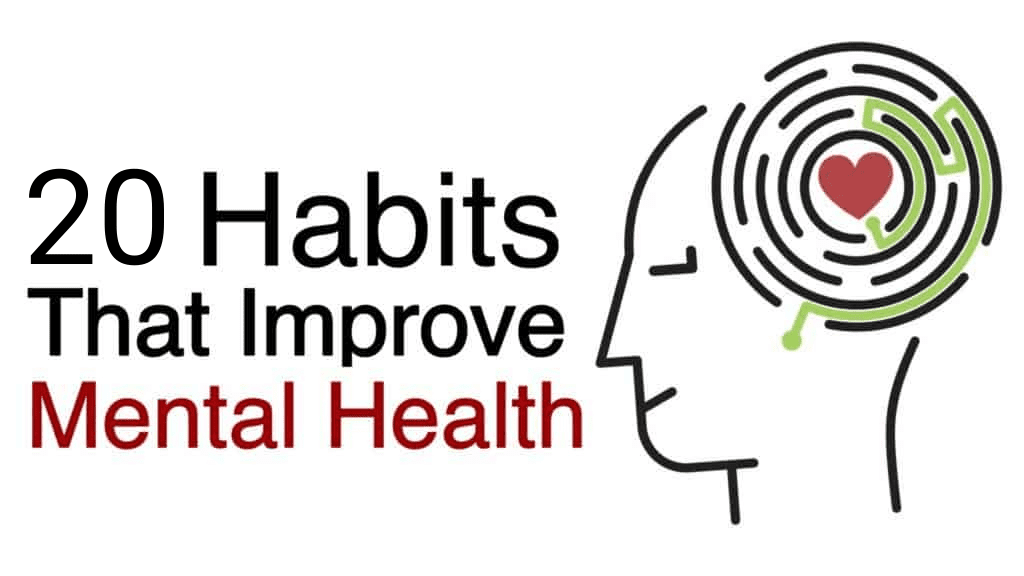Some argue that mental health is just as important as physical health; fair enough, but one could make a strong case that the former supersedes the latter. Without proper mental faculties, no level of physical prowess will overcome this weakness.
“Out of suffering have emerged the strongest souls; the most massive characters are seared with scars.” –Khalil Gibran
Our mental health state is dynamic in that it affects everything in every experience. For example, when our mental health is good, our job performance, relationships, and overall quality of life are also good. When we suffer, we cannot effectively navigate our daily life.
As important as mental health is, it’s pretty easy to take for granted. It is easy to succumb to social pressures that place physical attributes (e.g., appearance, body weight) over the mental. Furthermore, those seeking consolation for any mental health problems fear being stigmatized, perceived as “weak,” or otherwise being negatively judged.
The truth is that mental health problems are not a character weakness – they are a chemical imbalance in the brain. Plain and simple. Nothing less and nothing more.
Whether we realize it or not, we are responsible for maintaining our mental health. This responsibility should be second-to-none.
This brings us to the topic of this article: ways to maintain and improve your mental health. We sourced these ideas from the expert team at the University of Michigan University Health Service.
Ten Habits That Improve Mental Health
Try these new habits to help boost your mental resilience.
 1. Value yourself.
1. Value yourself.
It’s natural to be our “own worst enemy” at times, harshly criticizing any (real or perceivable) mistake and continually punishing ourselves psychologically.
Despite this default mechanism, make every attempt to practice some self-compassion (there are many ways of doing this, meditation among them.) Allocate time for the things you enjoy, such as your favorite hobbies.
Put: do things that make you feel good about being you!
2. Care for your body.
The connection between physical and mental health is well-established. As such, it is essential to take care of your body. Here are some things you can do:
- Do not smoke
- Drink a lot of water
- Get at least 30 minutes of exercise
- Sleep at least 7 to 9 hours per night
- Eat a well-balanced diet, avoiding high-fat and sweet foods and drinks.
3. Watch your social circle.
Not everyone is blessed to have solid family ties, which (unsurprisingly) helps with mental development. However, it’s our responsibility to allow the “right kinds” of people into our life. This means supporting family members or friends and searching for social events that can bring good people into your life.
4. Give what you can.
You don’t need to give away half your paycheck to reap the mental health benefits of generosity. Volunteer your time and energy to help someone else; find a worthy cause you can fully support and stick with it.
5. Understand and practice stress management.
Here’s an uncomfortable truth: some of us are atrocious at managing stress. These types of people face significant disadvantages in physical and mental well-being.
Several structured stress-management systems exist, and many of them are pretty compelling. Dr. Jon Kabat-Zinn’s Mindfulness-Based Stress Reduction (MBSR) program is worth mentioning. There are also plenty of simple stress-reduction techniques that can help, such as moment-to-moment mindfulness.
6. Silence your mind.
Our minds possess exceptional powers. Unfortunately, our minds can also be a liability. We can develop habits such as overthinking that threaten our mental states. As such, it’s important to practice techniques to counteract our “monkey mind.” Among them: mindfulness, prayer, deep breathing, relaxation techniques.
7. Look at your job
Job-related mental health problems are attributed to their inherent stressful requirements. Certain professions, according to health.com, are associated with higher levels of depression. Think of the jobs that work with the public–nurses, teachers, salespeople.
Should you suspect that your job is taking a dramatic toll on your mental health, it may be time to consider your options. Not many jobs are fun, but they shouldn’t be stressful as to threaten your mental stability.
8. Get rid of alcohol and other drugs
Sure, booze and pills can offer some temporary stress relief. However, when this behavior becomes habitual, it manifests into other severe problems.
The challenge lies in making people “see the light” regarding alcohol and drug use. More specifically, the long-term consequences of their use are NOT worth it.
9. Shake things up
Monotony is an inductor of stress. When we do the same thing, accumulated stress can pose a (sometimes severe) threat to our mental health daily. Find a way to mix in something enjoyable, or find ways to “switch up” your approach to work, hobbies, and other routine activities.
 10. Get some help
10. Get some help
Many employers in the United States offer an employee assistance program or EAP. EAP helps employees “with personal problems and/or work-related problems that may impact their job performance, health, mental and emotional well-being.” Other advanced countries offer something similar.
Regardless of whether it’s a board-certified psychiatrist or someone you look up to, find an outlet. Remember: getting help is not a sign of weakness. It is a sign of strength and courage.
11. Get outside
You’ll feel happier and less stressed outside into the sunlight and fresh air. Being outside causes your brain to release serotonin, a natural mood-stabilizing chemical. It’s a healthy escape to recharge your brain and get energized. Try getting out doing an activity such as:
- Going for a walk
- Gardening
- Swimming
- Having a picnic
- Birdwatch
- Taking a bike ride
12. Get enough sleep
People who get enough sleep have less depression and other mental health problems. Sleep recharges your body and mind. It boosts your mind and body, including the following:
- It helps your ability to learn
- Boosts your memory
- Protects your heart
- Improves your ability to decide
- It helps you avoid weight gain
13. Eat well
Your mental health connects directly to your physical health. When you eat well, you feel good physically and boost your positivity. Choose whole foods rather than processed. Eat lots of crunchy veggies, fresh fruits, lean meats, and whole, fibrous grains to experience your best health.
14. Read
Reading is an inexpensive way to improve your mental health. It strengthens your brain function lowers blood pressure and heart rate. A study conducted with college students found that the students who read daily felt less stressed. It reduced their psychological distress and improved their overall mental health. It’s thought that reading fiction is the most effective genre to reduce stress. When you’re fully engaged in the story, your muscles relax, and you concentrate. Your breathing and heart rate slow down similarly to when you meditate.
15. Laugh
Laughing lightens your mood and relieves your anxiety levels. Spontaneous and even “fake” laughter make you feel more positive about life. Laughter is a natural activity that boosts your mental health and relieves stress in your life. Watch a funny movie, read a funny novel or listen to your favorite comedian’s podcast.
16. Express gratitude
When you are grateful, it can reduce your stress. Gratitude helps you to let go of negativity. It allows you to be thankful to the people around you. As you express gratitude to others, you’ll be surprised at how it improves your outlook on life and mental health.
17. Look for the good
Focusing on your life’s bad things makes you feel weighed down. It harms your mental health. Try focusing less on your problems. There’s always some good, even in the most challenging situations. Take some time today to look for the good that’s going on around you.
18. Be creative
Did you know that creativity can improve your mental health? As you focus on your creative activity, your mind is stimulated, lowering your stress. Creativity helps you solve problems. Studies found invention produces positive emotions and can give you a greater sense of well-being. Individuals who practice creativity say they feel happier and have more energy.
19. Get some exercise
Exercise increases the health of your mind and body. Taking time to exercise relieves your anxiety, helps you sleep, and reduces overall stress. On average, strive to get around 30 minutes of exercise at least three times a week. You don’t need to do the thirty minutes all at once. Break it up with different activities, such as:
- Yoga
- Walking
- Strength training
- Push-up
- Swimming
- Biking
20. Get a pet
Owning a pet gives you a sense of purpose and reduces stress and anxiety. Dog owners get more exercise because their dog needs to go for walks. You’ll have a better sense of security and feel less lonely when you have a pet. Pets boost your self-confidence and give you a chance to meet new people in your neighborhood.
Final Thoughts on Developing Habits That Improve Mental Health
If you struggle with depression or anxiety, try incorporating some of these suggestions into your daily routine. Of course, these won’t remove all your issues, but they can help lower your anxiety and boost your overall well-being. Remember, you’re not alone in your struggles. If you struggle with depression, be sure to see your doctor.

















